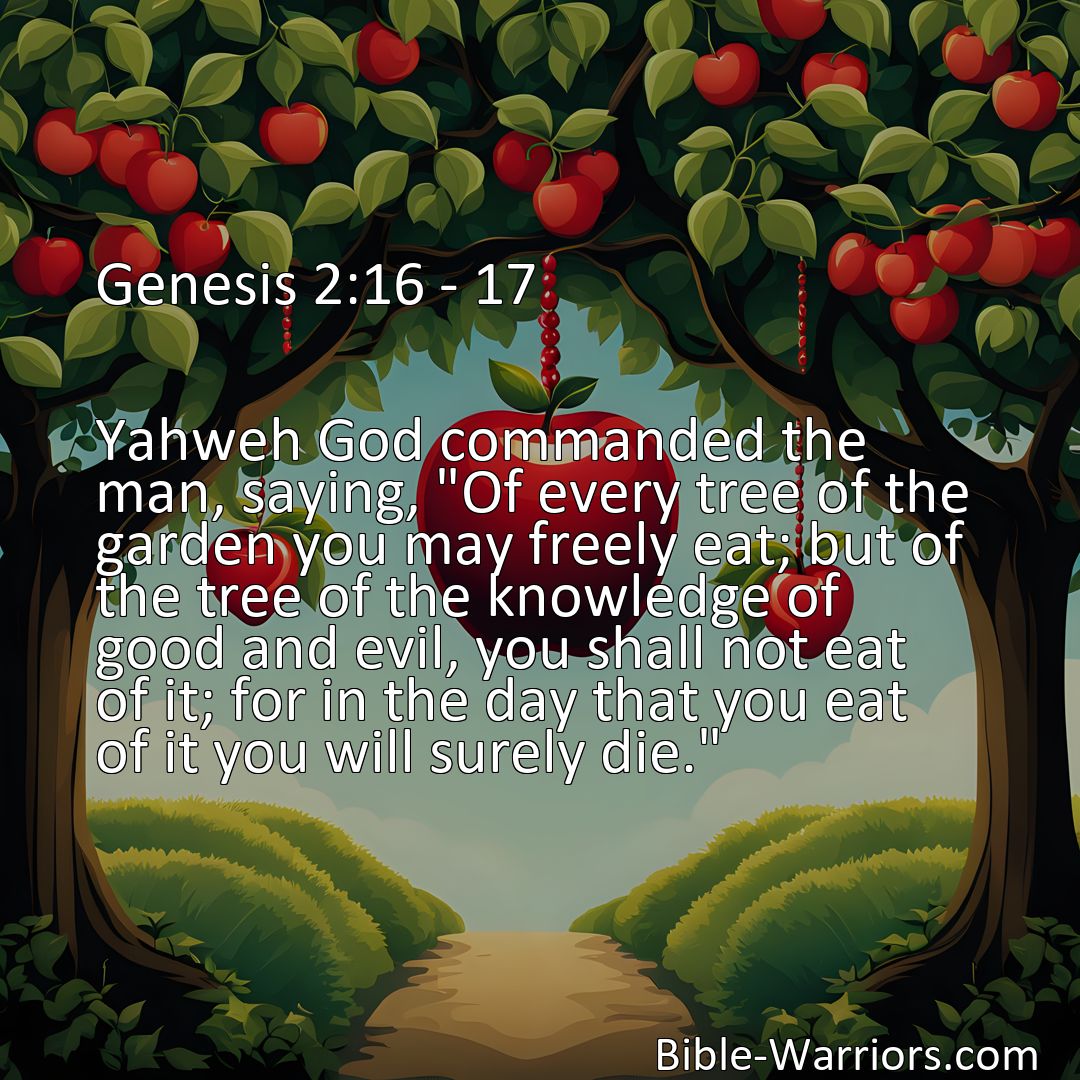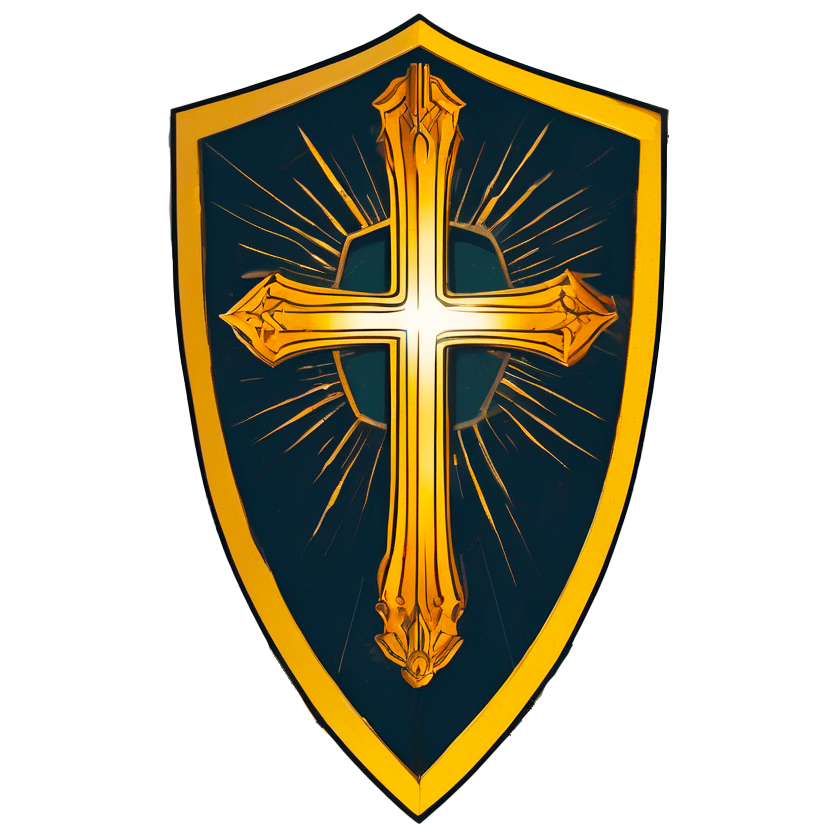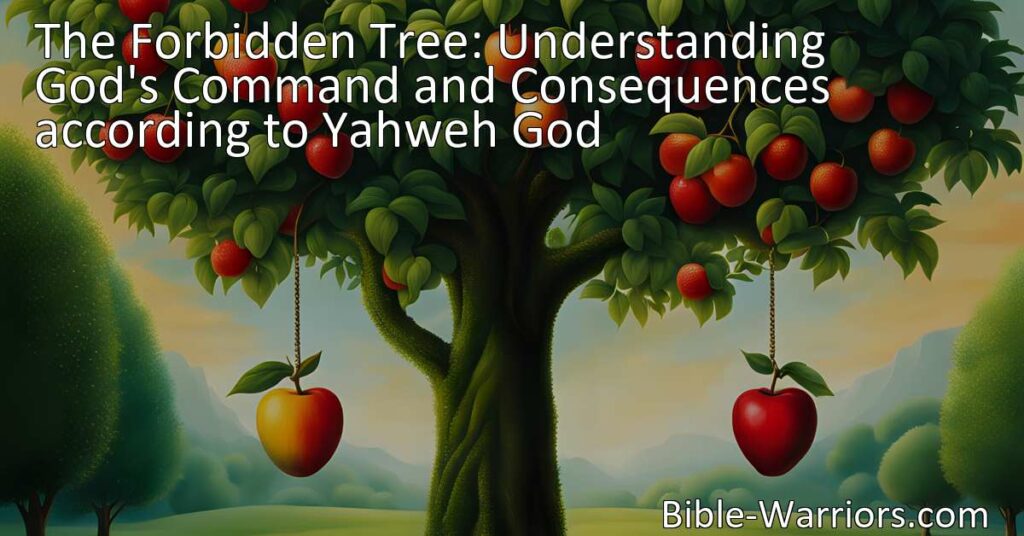Genesis 2:16 – 17 – Yahweh God commanded the man, saying, “Of every tree of the garden you may freely eat; but of the tree of the knowledge of good and evil, you shall not eat of it; for in the day that you eat of it you will surely die.”
Discover the significance of the forbidden tree in the biblical account of Adam and Eve. By understanding God’s command and the consequences that followed for disobeying it, we gain insight into the importance of obedience and the impact of our choices. Explore the symbolism behind the tree and its lessons on trust and free will.
Table of Contents
In the biblical account of Adam and Eve, there is a significant event that takes place in the Garden of Eden involving a tree known as the tree of the knowledge of good and evil. This tree holds a great significance in understanding God’s commandments and the consequences that followed when those commandments were not followed. Yahweh God, the creator of Adam and Eve, specifically commanded them not to eat from this tree, warning them that death would be the consequence if they did.
The instruction that God gave Adam about this tree is found in Genesis 2:16-17: “Yahweh God commanded the man, saying, ‘Of every tree of the garden you may freely eat; but of the tree of the knowledge of good and evil, you shall not eat of it; for in the day that you eat of it you will surely die.'”
These verses can be a source of curiosity and questions for many individuals, especially when trying to understand the reasoning behind God’s command and the severity of its consequences. To delve deeper into this matter, it is crucial to consider the symbolism behind this tree and the implications it holds for humanity.
First and foremost, it is important to note that the tree itself is not inherently evil. In fact, God had created it along with all the other trees in the garden. Its purpose was not to cause harm or misery, but rather to test the obedience and loyalty of Adam and Eve towards their Creator. It served as a boundary that allowed them to exercise their free will and make a choice.
The tree of the knowledge of good and evil represents the duality of choices that humanity faces. It symbolizes the ability to discern between right and wrong, good and evil. By forbidding Adam and Eve from eating its fruit, God was emphasizing the importance of trust and obedience in their relationship with Him. He wanted them to rely on His wisdom and guidance, rather than attempting to determine for themselves what is right and wrong.
It is essential to note that God’s command was not given to restrict Adam and Eve’s freedom, but rather to safeguard their well-being. God had already provided them an abundance of other fruits in the garden that they were freely allowed to eat from. However, by eating from the tree of the knowledge of good and evil, they would be stepping into an area where they were not meant to go.
So, what were the consequences of disregarding God’s commandment? When Adam and Eve ate from the tree, they experienced a separation from God, which is often referred to as spiritual death. The consequence of their disobedience affected not only themselves but all of humanity that followed. They lost their innocence and were cast out of the Garden of Eden, no longer able to live in the presence of God.
It is important to understand that God’s justice and love are intertwined in this story. While the consequence of disobedience was severe, it also reflects God’s righteousness and the importance of upholding His commandments. The story of the forbidden tree illustrates the significance of our choices and the consequences they may have, both in our relationship with God and in our daily lives.
In conclusion, the biblical account of Adam and Eve and the forbidden tree highlights the importance of obedience and trust in our relationship with God. It teaches us that God’s commandments are not meant to restrict us but to guide and protect us. The consequences of disregarding these commandments serve as a reminder of the significance of our choices and the impact they can have on our spiritual well-being. By understanding and reflecting on this story, we can gain a deeper understanding of God’s commandments and the consequences that might follow if we choose to disobey them.
Freely Shareable Bible Verse Image Genesis 2:16 – 17
I hope this Bible verse image brings you hope and peace. Share it with someone who needs it today!



